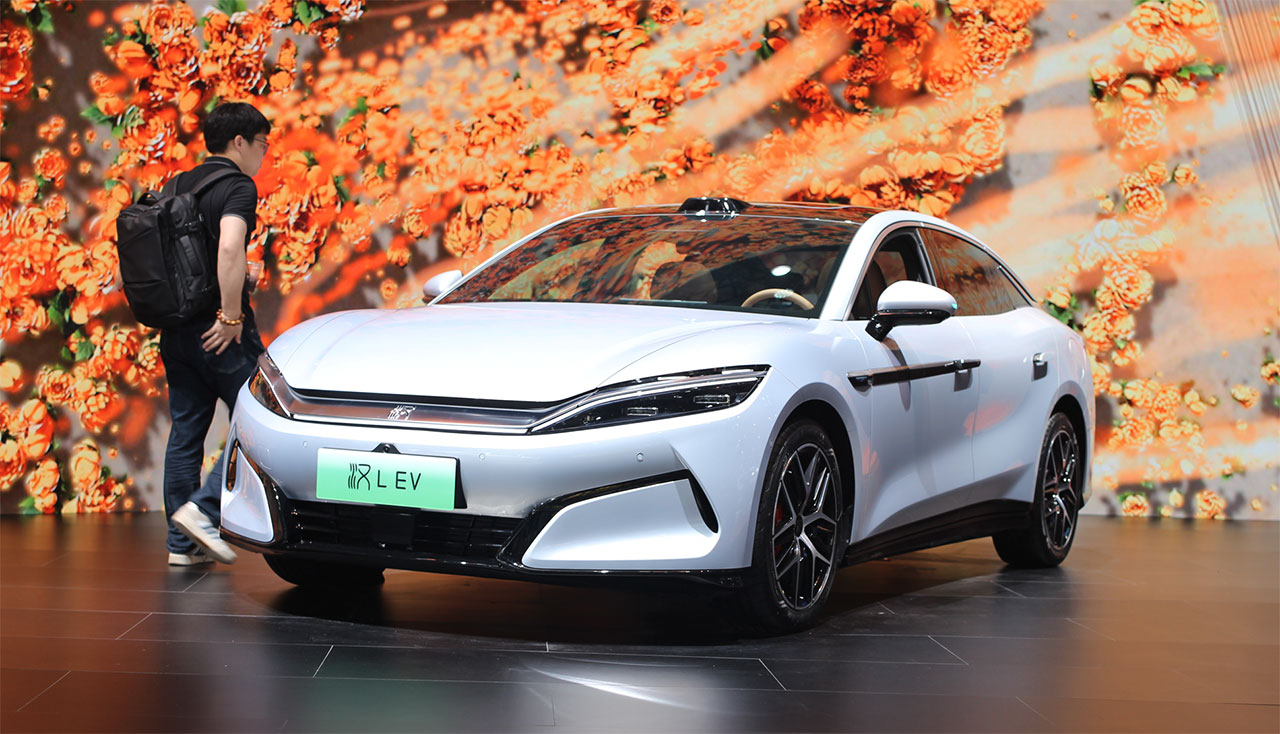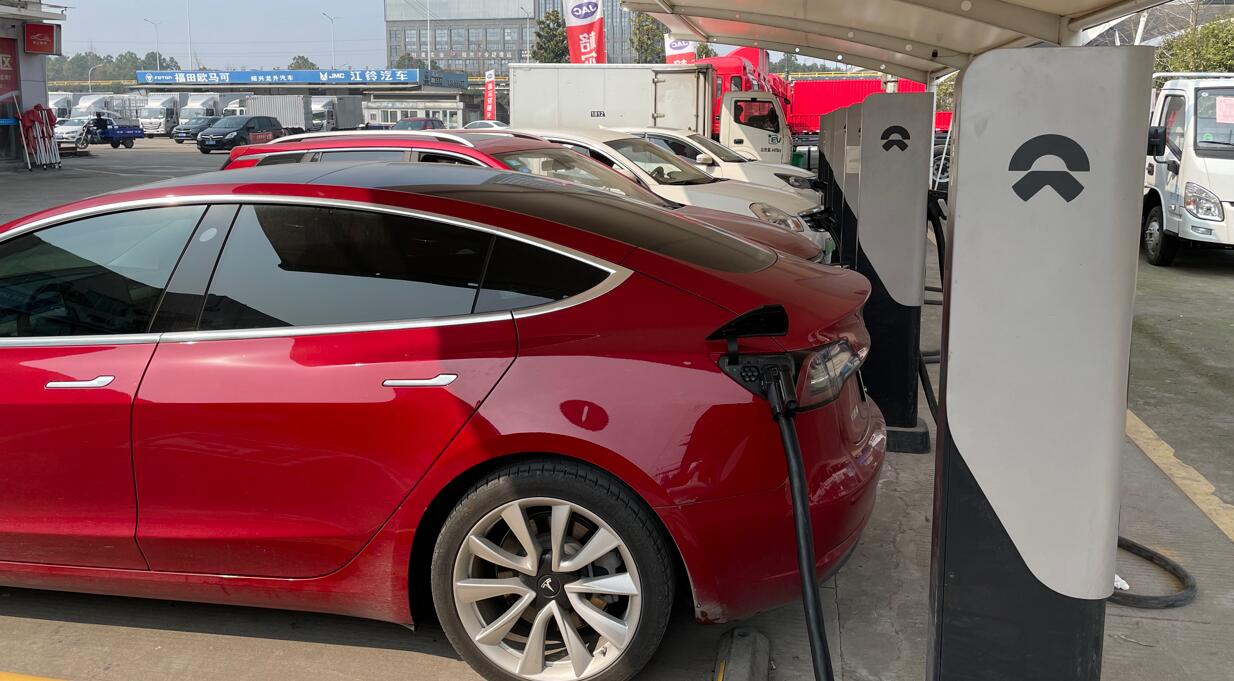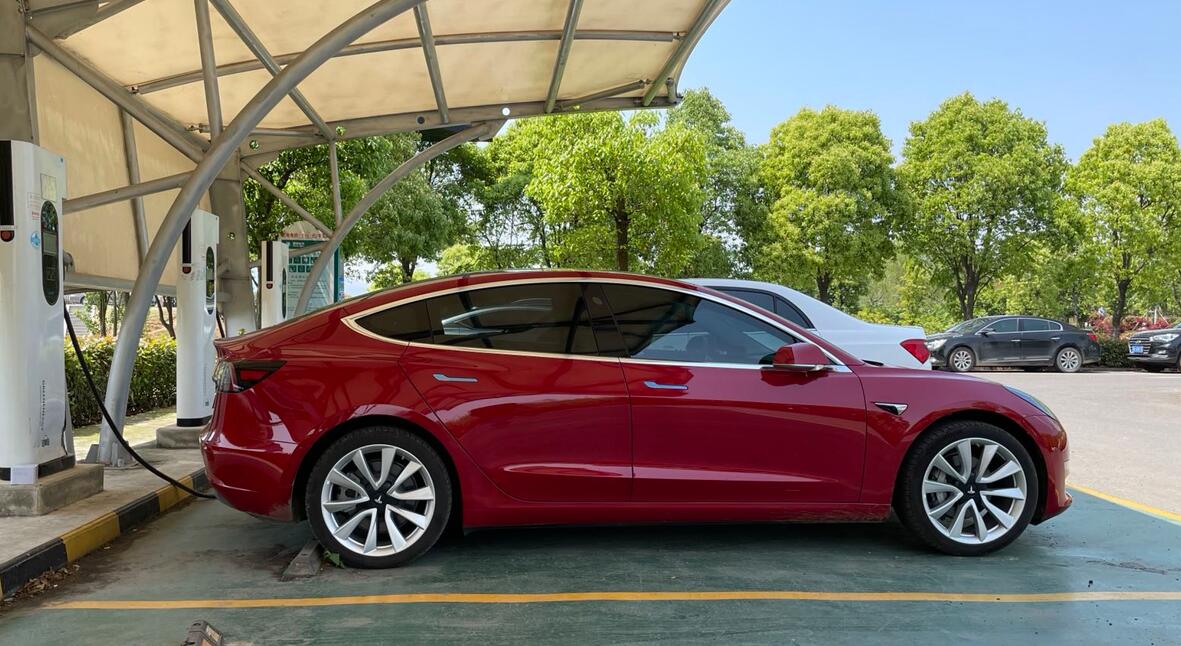
Beijing has banned the acceptance of new gasoline vehicles on ride-hailing platforms since July 20, with only EVs accepted.
For details, please visit CnEVPost.

Beijing has banned the acceptance of new gasoline vehicles on ride-hailing platforms since July 20, with only EVs accepted.
For details, please visit CnEVPost.

The 20,000 quotas are additional to the original 80,000 quotas and can only be used to purchase purely electric vehicles.
For details, please visit CnEVPost.
Two people have died, cars have been swept away by floodwaters and streets have become rivers.
The post Beijing hit by rare rainstorms and floods appeared first on CnEVPost.
For more articles, please visit CnEVPost.
Beijing is offering subsidies of up to RMB 10,000 for residents to purchase NEVs, while Xi’an is offering subsidies of up to RMB 6,000 for NEV purchases and RMB 10,000 for the installation of charging piles.

(Image credit: CnEVPost)
After China’s state-level subsidies for the purchase of new energy vehicles (NEVs) expired at the end of last year, a growing number of cities have begun offering separate subsidies this year to support local economic development.
The Chinese capital city of Beijing released details of its policy to encourage local residents to purchase NEVs, following media reports of the city’s plans without any details last month.
Between March 1 and August 31, Beijing residents who transfer or scrap passenger vehicles they have owned for more than a year and buy NEVs can receive a subsidy of up to 10,000 yuan ($1,450), according to a program jointly released today by several government departments in the city.
The move is aimed at boosting Beijing’s car consumption, optimizing the local vehicle mix and encouraging local residents to replace their passenger cars with NEV, the program reads.
The program refers to passenger vehicles as gasoline, diesel, gas, hybrid or battery-powered small and micro vehicles registered in Beijing for more than one year, and NEVs as purely electric small and micro passenger vehicles, including extended-range electric vehicles (EREVs).
This means that residents who previously owned a passenger car in Beijing — whether it was a traditional internal combustion engine vehicle or NEVs — can receive a subsidy if they purchase a pure electric vehicle or an EREV when replacing their old vehicle. If they purchase a plug-in hybrid, on the other hand, they will not be eligible for the subsidy.
If they previously owned NEVs, they can receive a subsidy of RMB 8,000 even if they have held them for less than 1 year.
Local residents who transfer out of other types of passenger vehicles and purchase NEVs can receive a subsidy of RMB 8,000 if the original vehicle has been owned for 1-6 years. If the old vehicle has been held for more than 6 years, then the subsidy amount is RMB 10,000.
It is worth noting that Beijing implemented a similar policy last year.
On June 26, 2022, Beijing launched a program on encouraging vehicle replacement consumption in order to incentivize residents to purchase NEVs when they replace their vehicles.
The city also offered subsidies of up to RMB 10,000 at the time, and the policy was then valid from June 1 to December 31.
On February 28, Beijing Daily reported that the Beijing city government held a consumer season launch ceremony with tens of thousands of merchants participating in areas including automobiles, restaurants, e-commerce and tourism.
In the auto sector, Beijing will continue last year’s car replacement subsidy policy, details of which will be released in due course, the report said.
In addition to Beijing, Xi’an, a city in northwest China’s Shaanxi province, also released its NEV purchase subsidy program today.
Between March 21 and April 30, consumers who buy a NEV produced by a local carmaker in Xi’an will receive a subsidy of up to RMB 6,000 yuan.
Local consumers who install their own charging facilities by December 31 of this year will receive a subsidy of RMB 10,000.
Prior to Beijing and Xi’an, many other cities, including Shanghai and Hefei in Anhui province, released similar policies earlier this year.
($1 = RMB 6.8722)
Shanghai extends $1,500 subsidy to encourage residents to replace cars with EVs
The post Beijing, Xi'an latest cities to offer subsidies to encourage residents to buy NEVs appeared first on CnEVPost.
For more articles, please visit CnEVPost.
 Beijing introduced a policy to encourage residents to replace their vehicles with NEVs in June 2022, and they expired at the end of last year.
Beijing introduced a policy to encourage residents to replace their vehicles with NEVs in June 2022, and they expired at the end of last year.
The post Beijing to renew trade-in subsidies that encourage NEV purchases appeared first on CnEVPost.
For more articles, please visit CnEVPost.